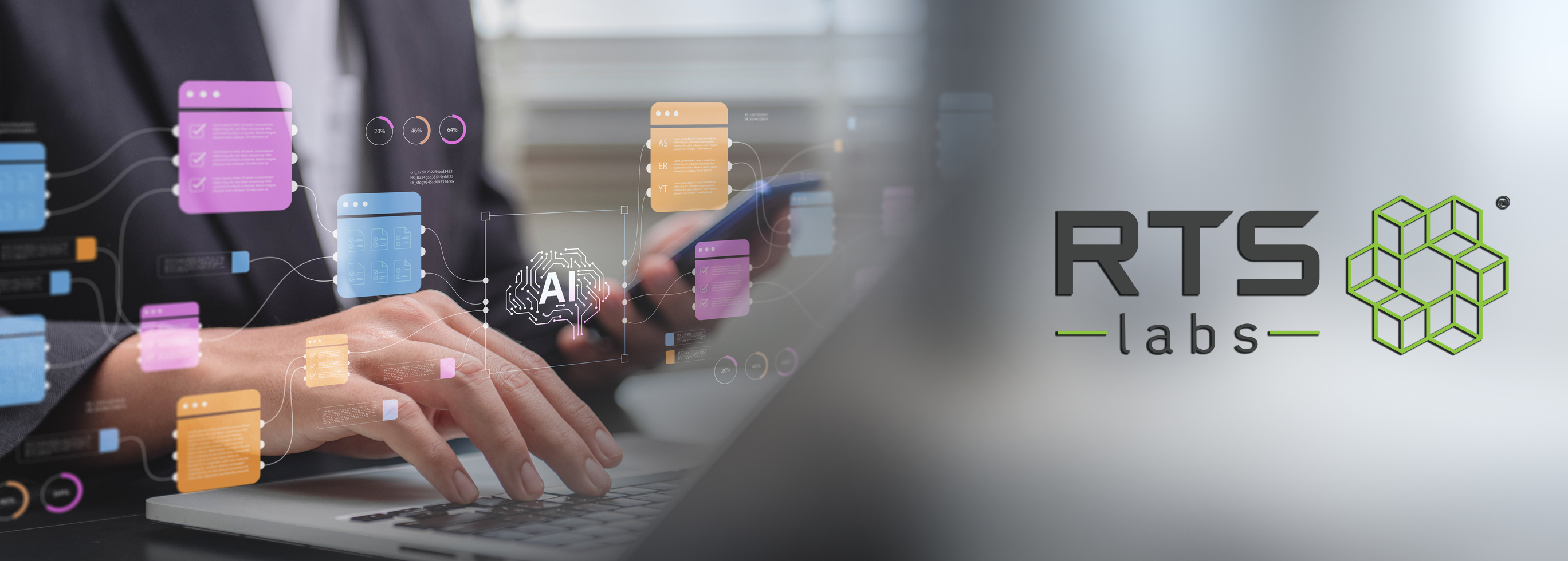300 billion words or 570 GB of data, is how much text the AI model behind ChatGPT was trained on, pulled from vast databases across the internet. This is just one of the many generative AI tools shaping the future of technology today. From recommendation engines to sophisticated chatbots, web data collection for AI plays a major role in turning raw information into smart systems capable of mimicking human-like intelligence.
Yet, in the rush to train ever-larger models, developers have harvested enormous amounts of data from the web—potentially even some of your own public or private data. The result? An AI that can do remarkable things, but not without raising critical concerns about privacy, data security, and fairness. The process of web data collection must, therefore, be handled with extreme care. While gathering vast amounts of data is essential to building AI that learns, adapts, and improves, it also demands attention to ethical considerations. How do we guarantee that this data is used responsibly?
This article will explore the dual focus of effective and ethical web data collection for AI. By understanding how to collect data responsibly and use it efficiently, developers can create powerful AI systems while upholding the highest ethical standards.
The Importance of Web Data in AI Development
Web data collection refers to the process of gathering information from various online sources such as websites, social media, and databases. This data is foundational for training AI systems, allowing them to learn from patterns and make decisions across a wide range of applications. AI data collection methods include techniques like web scraping, APIs, and crawling, which allow developers to compile large datasets that are then used to train machine learning models, enhance natural language processing (NLP) capabilities, and improve computer vision technologies.
Real-world examples show how web data drives AI innovations. For instance, chatbots and virtual assistants like Siri and Alexa are powered by vast datasets collected from the web, enabling them to mimic human conversation and understand context. Likewise, recommendation engines used by platforms such as Netflix and Amazon rely on extensive web data to analyze user behavior and deliver personalized content.
The importance of large datasets cannot be overstated. The more data an AI model is trained on, the more accurate and capable it becomes at identifying complex patterns and nuances. However, this process must be balanced with responsible data collection for AI. For businesses looking to use this data effectively, AI consulting services can provide the expertise needed to navigate both technical and ethical challenges while optimizing AI model performance.
Ethical Challenges in Web Data Collection for AI
One of the primary ethical concerns surrounding web data collection for AI is the potential violation of users’ privacy. Many web scraping techniques pull data without the explicit consent of the individuals involved, raising serious ethical dilemmas. When users post information online—whether it’s social media content, reviews, or personal blogs—they often do so without the expectation that their data will be used to train AI models. Without proper consent, collecting this data can infringe on users’ privacy rights and compromise trust in the AI industry.
-
Risks of Violating Data Privacy Regulations
With data protection laws like the General Data Protection Regulation in the EU and the California Consumer Privacy Act in the US, companies must be careful about how they collect and use data. These regulations require that users are informed about how their data is being collected, stored, and used. In many cases, web scraping operations may unintentionally violate these regulations by gathering personal data without following proper legal guidelines.
For instance, GDPR emphasizes the right to be forgotten, meaning users can request that their data be deleted. Non-compliance with these regulations can lead to hefty fines and legal penalties, as well as damage to a company’s reputation.
-
Case Studies: Cambridge Analytica Scandal
One of the most well-known cases of unethical data collection involved Cambridge Analytica, a firm that harvested the personal data of millions of Facebook users without their consent. This data was then used to influence voter behavior in political campaigns.
The scandal not only led to a significant public outcry but also resulted in legal consequences for both Cambridge Analytica and Facebook. It serves as a stark reminder of the dangers of improperly collected data and the impact it can have on society.
-
Long-term Reputational and Financial Risks
Unethical web data collection for AI poses long-term risks for companies. Beyond the immediate legal consequences, businesses that engage in irresponsible data practices face severe damage to their reputations. Consumers are becoming increasingly aware of privacy issues and are more likely to avoid companies with poor data practices. This can result in lost revenue, diminished customer trust, and a tarnished brand image.
Legal Frameworks Governing Web Data Collection
As web data collection becomes central to AI development, considering the legal frameworks for data collection is critical. Understanding and adhering to these regulations is essential for responsible data collection for AI and avoiding legal pitfalls.
-
GDPR and Web Scraping
The GDPR is one of the most stringent laws concerning data collection and privacy. It governs the collection, processing, and storage of personal data for EU citizens, even if the company collecting the data operates outside the EU. For AI developers using tools for web data collection, GDPR compliance means obtaining explicit user consent, offering transparency about how data is being used, and providing individuals with the right to access or delete their data. Failure to comply can result in significant fines—up to 4% of a company’s global revenue.
-
CCPA
Similarly, the CCPA protects California residents by giving them greater control over their personal data. Companies must disclose the categories of data they collect and how they intend to use it. The CCPA also mandates that consumers have the right to opt out of data collection and request that their personal information be deleted. For AI developers working in the U.S., following CCPA guidelines is crucial to maintaining trust and avoiding financial penalties.
-
HIPAA
When it comes to healthcare data, HIPAA sets forth additional requirements for protecting patient information. Any AI tools dealing with health-related data must guarantee compliance with HIPAA’s strict confidentiality and data security standards.
-
Intellectual Property and Terms of Service
In addition to privacy laws, intellectual property laws and terms of service agreements play a significant role in web data collection. Websites often include restrictions in their terms of service that prohibit or limit web scraping. Violating these agreements can result in legal action, even if the data collected is publicly available. It’s important for developers to review and respect these agreements before employing web scraping techniques, as scraping copyrighted or proprietary content could lead to lawsuits.
-
Recent Legislation and Updates
Data privacy laws are continuously changing. Countries like Canada, Brazil, and India are implementing or updating their own regulations, further complicating the global landscape for web data collection. Keeping up with these changes is essential for ensuring responsible data collection for AI on an international scale.
Effective Strategies for Web Data Collection
When building AI systems, using the right tools for web data collection is key to success. Here are some effective methods and best practices for gathering, organizing, and storing data.
Methods for Collecting Data
- Web Scraping: One of the most popular techniques, ethical web scraping involves using bots or tools to extract information from websites. It’s a powerful way to gather large amounts of data, from product details to user reviews. However, this method requires careful consideration of legal restrictions, such as adhering to GDPR and web scraping rules, as some websites may prohibit scraping in their terms of service.
- APIs: Many websites offer APIs, which provide structured data access. APIs are a more reliable and legal method compared to web scraping, as they are designed to offer data in a format that developers can easily integrate into their systems.
- Public Datasets: Another ethical and efficient option is using public datasets. These datasets are often made available by governments, research institutions, or open data initiatives.
Tools and Technologies for Efficient Data Collection
Several tools and technologies can streamline and scale web data collection efforts:
BeautifulSoup and Scrapy are popular Python libraries for web scraping, enabling developers to efficiently extract data from websites. Selenium automates web browsers and is useful for scraping dynamic websites where content changes based on user interaction. Google Cloud Dataflow and AWS Lambda are scalable platforms for processing and managing large-scale data collection operations. These tools, paired with top-tier data engineering services, guarantee efficient, ethical, and scalable data collection for AI applications.
Best Practices for Organizing and Storing Collected Data
Once data is collected, it must be properly organized and stored for future use. Following these best practices can help:
- Data Labeling: Label data clearly and accurately, especially if it will be used for machine learning training. Labeled data helps AI models understand patterns and make predictions.
- Use of Databases: Store data in a structured database such as SQL or NoSQL, depending on the data type.
- Regular Audits: Conduct regular audits to maintain data quality. This includes removing duplicates, correcting inaccuracies, and maintaining consistency across datasets.
Ethical Strategies for Responsible Data Collection
By following these strategies, you can create ethical, secure, and unbiased web data collection for AI that benefits both your AI development and user trust.
-
Transparent and User-Consented Practices
Transparency is key to responsible data collection for AI. Always inform users about what data is being collected and why, and obtain their explicit consent. Clear privacy policies and opt-in mechanisms allow users to make informed choices about sharing their information.
-
Anonymization and Encryption
To protect user identities in web data collection for AI, use anonymization—removing personally identifiable information (PII)—and encryption to secure sensitive data during transmission and storage. This prevents misuse and aligns with privacy regulations like GDPR and CCPA.
-
Avoiding Biases in Data
AI models are only as unbiased as the data they’re trained on. To avoid perpetuating harmful biases, make sure your datasets are diverse and inclusive, representing various demographics, perspectives, and contexts. This results in more fair and balanced AI outcomes.
-
Ethical Review Processes
Before starting web data collection for AI, implement an internal ethical review process. This includes assessing potential risks, ensuring compliance with regulations, and evaluating the ethical impact of using the data. Ethical committees or reviews provide a framework for maintaining accountability in your data collection practices.
Balancing Effectiveness and Ethics: A Roadmap
Here is a quick roadmap to balancing the ethics of web data collection in AI:
Define Ethical Guidelines and Objectives
- Establish Ethical Standards: Begin by defining clear ethical guidelines for data collection and usage. Make sure these standards align with privacy laws and ethical principles.
- AI Consulting Integration: Incorporate these ethical standards into your AI consulting practices to guide data collection and AI development strategies.
Develop a Data Governance Framework
- Create Policies: Develop comprehensive data governance policies that cover data collection, storage, and processing, focusing on privacy, security, and compliance.
- Diversity and Inclusion: Confirm that your data governance framework addresses the need for diverse and inclusive datasets to avoid biases.
Implement Data Protection Measures
- Anonymization: Use anonymization techniques to remove personally identifiable information from your datasets.
- Encryption: Secure data with encryption to protect it from unauthorized access and breaches.
Integrate Ethics into AI Development
- Transparency: Guarantee transparency in how data is used to train AI models and clearly communicate this to users.
- Consent: Implement processes to obtain explicit consent from users before collecting or using their data.
By following this roadmap, you can make your data work for you while effectively balancing data collection effectiveness with ethical considerations.
Tools and Technologies for Ethical Data Collection
| Category | Overview | Examples | Key Features |
| Compliant APIs | Provide structured data access with built-in compliance mechanisms. | Twitter API, Google BigQuery | Clear documentation, data access controls, mechanisms for obtaining user consent. |
| Privacy-Respecting Scraping Tools | Tools configured to collect data responsibly while adhering to legal standards. | Scrapy, Octoparse | Configurable scraping rules, respect for robots.txt files, adherence to website terms of service. |
| Ethical Data Management Platforms | Organize and protect data, guaranteeing compliance and ethical standards. | Databricks, Talend | Data encryption, anonymization capabilities, detailed audit trails. |
| Implementing Ethical Safeguards | Technologies and practices for ethical data handling. | Varies by tool | Granular data access controls, anonymization, consent management. |
| Choosing Data Collection Tools | Features to look for when selecting tools for ethical data collection. | Varies by tool | Compliance with data protection laws, strong privacy controls, user-friendly interface. |
FAQs: Common Questions about Web Data Collection for AI
- What is web data collection?
Web data collection involves gathering data from websites to use in AI models, including methods like web scraping, APIs, and public datasets.
- Is web scraping legal?
Web scraping is legal if it complies with website terms of service and data protection laws. However, unauthorized scraping can violate terms and laws.
- How can I ensure my AI development is ethically sound?
You can guarantee ethical AI development by obtaining user consent, protecting data privacy, anonymizing data, and regularly auditing practices for compliance with ethical standards.
- What tools are recommended for ethical web data collection?
Recommended tools include compliant APIs (e.g., Twitter API, Google BigQuery), privacy-respecting scraping tools (e.g., Scrapy, Octoparse), and data management platforms (e.g., Databricks, Talend).
- How does GDPR impact web data collection for AI?
GDPR requires explicit consent for data collection, mandates data protection and anonymization, and grants users rights to access and delete their data.
- How do I protect sensitive information during data collection?
Protect sensitive information by using anonymization techniques, encryption, and guaranteeing compliance with data protection regulations.
Further Reading
- “Atlas of AI: Power, Politics, and the Planetary Costs of Artificial Intelligence”
Author: Kate Crawford
This book explores the impact of AI on political life, environmental sustainability, and societal understanding. Crawford draws on extensive research to reveal how AI is a technology of extraction, affecting everything from natural resources to labor and data. - “The Ethical Algorithm: The Science of Socially Aware Algorithm Design”
Authors: Michael Kearns, Aaron Roth
This book provides insights into designing algorithms with ethical considerations in mind. It covers foundational principles of AI ethics and discusses how to integrate these principles into algorithmic design. - “AI Ethics: A Textbook”
Author: Paula Boddington
This textbook clarifies fundamental concepts in AI ethics, exploring its implications in technology, regulation, society, religion, and culture. It is designed for both students and educators, with varied exercises to facilitate understanding.
If you’re ready to take your business to the next level with AI-driven demand forecasting or any other advanced technology solutions, contact RTS Labs today for a free consultation. Our experts are here to help you leverage the power of AI to boost your business success.









